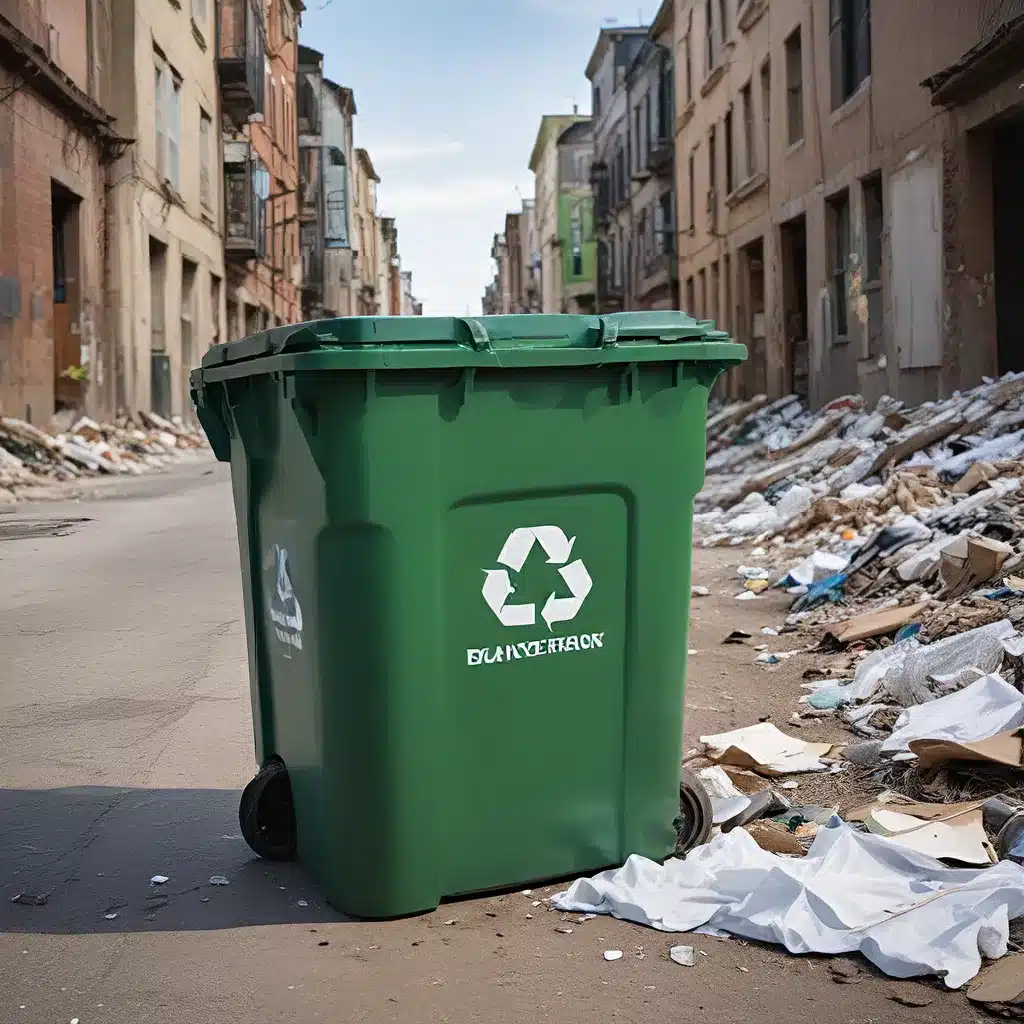
As someone who’s always been passionate about sustainability, I can’t help but feel a twinge of frustration when I think about the state of waste management in this country. Don’t get me wrong, we’ve come a long way since the days of indiscriminate dumping and burning. But the truth is, our current systems are still far from perfect. In fact, they’re downright broken in a lot of ways.
But you know what they say – where there’s a problem, there’s an opportunity. And when it comes to waste management, I believe we’re on the cusp of a revolution. The old ways of thinking are being challenged, and innovative new approaches are springing up all over the place. It’s an exciting time, to say the least.
Let’s dive in, shall we? First, let’s talk about the ‘National Sword’ – that infamous policy change enacted by the Chinese government back in 2017. For decades, China had been the world’s go-to destination for our recyclables, happily scooping up whatever we sent their way. But then they decided to put their foot down, setting strict new standards for what they’d accept.
Suddenly, our carefully curated recycling programs were in shambles. Municipalities across the country found themselves drowning in materials they couldn’t unload. It was a wake-up call, for sure. But instead of throwing in the towel, some cities and states stepped up to the plate in a big way.
Take Vermont, for example. In 2012, they passed a ‘Universal Recycling Law’ that established a timeline to ban three major waste categories from landfills: recyclables, yard debris, and compostable food scraps. The results have been nothing short of impressive. Transfer stations across the state are now seeing a surge in organic material, and the state’s recycling rate has climbed steadily.
And it’s not just Vermont – California has followed suit, with new regulations that will require local governments to provide organic waste collection starting in 2022. This kind of state-level action is crucial, because let’s face it – a lot of cities and towns are struggling to keep up on their own. They need the support and resources to make real, lasting change.
But it’s not just about policy, either. Some municipalities are getting downright innovative in their approach to waste management. Take Boise, Idaho, for instance. After a 2014 study found that the majority of their waste was organic material, the city launched a curbside compost program in 2017. It’s a small investment – just a $3.40 fee increase per household per month – but the dividends are huge. They’re now diverting over 30% of their residential waste, more than 70,000 tons of material, with a 97% participation rate.
And it’s not just about putting new systems in place – it’s also about rethinking the way we approach waste altogether. In Munich, Germany, the local waste management authority launched a secondhand store focused on repair and reuse back in 2000. It was such a success that they expanded it to a massive “bulk reuse center” in 2016, collecting items that can be cleaned, fixed, and resold.
The key here is that Munich is prioritizing the top tiers of the waste hierarchy – reduction, reuse, and recycling – over simply dumping everything in the landfill. And they’re doing it in a way that engages the whole community, promoting repair and reuse as an issue that affects everyone.
But it’s not just local governments that are stepping up to the plate. Private companies are also getting in on the action, and Brightmark is a shining example. This circular innovations company is tackling two of the biggest waste streams out there – plastics and organics – using cutting-edge technologies like anaerobic digestion and Plastics Renewal.
Through their partnerships with dairy farmers and marine sanctuaries, Brightmark is finding innovative ways to divert waste from landfills and oceans, turning it into valuable new products. And they’re not just doing it for the bottom line – they’re also investing in the next generation of sustainability champions, like the SPE Foundation Scholarship they’ve established.
So, what can we take away from all of this? Well, for one thing, it’s clear that waste management is no longer just a necessary evil – it’s a crucial battleground in the fight for a more sustainable future. And the good news is, we’re starting to see some real progress and innovation in this space.
But it’s not going to be easy. As the National Sword and the COVID-19 pandemic have shown us, there are all sorts of systemic challenges at play. From fragmented collection systems to volatile global markets, the waste management industry is a complex beast.
That’s why it’s going to take a comprehensive, collaborative approach to truly reimagine waste. We need action at all levels of government, from local to state to federal. We need private industry to step up and take responsibility for the waste they create. And we need consumers to change their behaviors and embrace a more circular way of thinking.
It’s a tall order, I know. But I believe it’s achievable. Because when it comes to the health of our planet, we simply can’t afford to keep doing things the way we always have. We have to be willing to rethink, reimagine, and reinvent – even if it means challenging the status quo.
So, who’s with me? Let’s roll up our sleeves and get to work on building a zero-waste future. The time for action is now, my friends. The planet is counting on us.
Check out our sustainable waste management solutions to learn more

